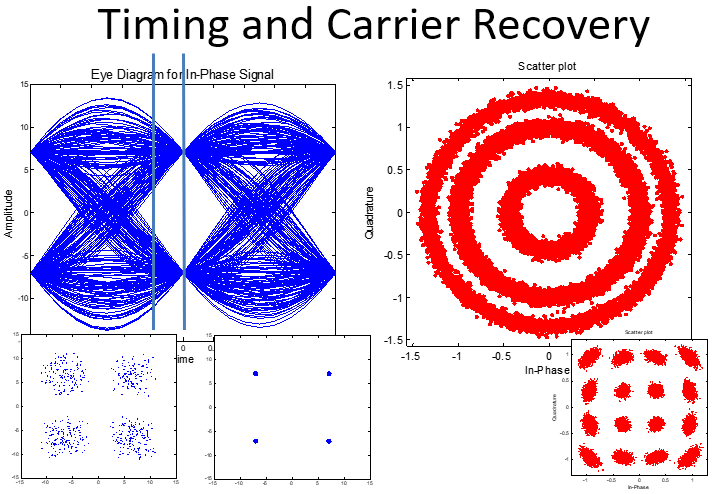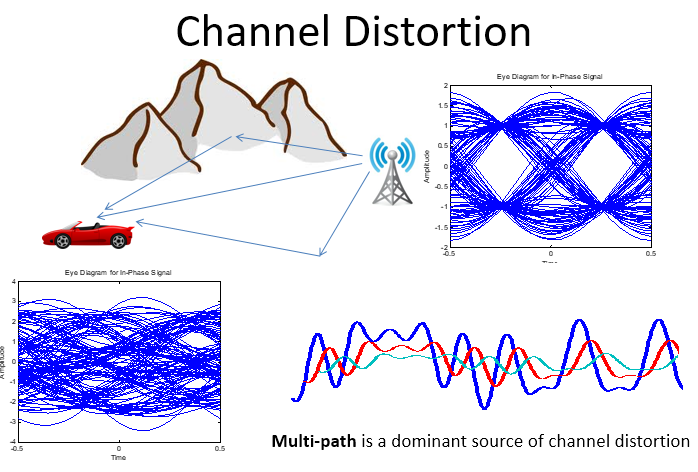
Course Description
Course Name:
Signal Processing For Software Radio
Course Start Date: Mar 19, 2026
Q&A Workshops:
Mar 26, Apr 2, 9, 16, 23
Location: Zoom Meetings
Speaker: Dan Boschen
Back To Courses > Signal Processing For Software Radio
Pre-Recorded Videos combined with Live Q&A Workshops
This course consists of pre-recorded lectures that students can watch on their own schedule and an unlimited number of times prior to live Q&A/Workshop sessions with the instructor. Ten 1.5 hour videos released 2 per week while the course is in session will be available for up to two months after the conclusion of the course. Workshop sessions are recorded and Dan is available throughout the course to answer questions as well.
Course Summary
This course builds on the course "Signal Processing for Wireless Communications" also taught by Dan Boschen, further detailing digital signal processing most applicable to practical real-world problems and applications in radio communication systems. Students need not have taken the prior course if they are familiar with fundamental Signal Processing concepts such as the Laplace and Z transform and basic digital filter design principles.
This course brings together core Signal Processing concepts to address signal processing challenges encountered in radios and modems for modern wireless communications. Specific areas covered include carrier and timing recovery, equalization, automatic gain control, and considerations to mitigate the effects of RF and channel distortions such as multipath, phase noise and amplitude/phase offsets.
Dan builds an intuitive understanding of the underlying principles through the use of graphics, visual demonstrations, and real-world applications for mixed signal (analog/digital) modern transceivers. This course is applicable to Signal Processing architecture and algorithms with a focus on meeting practical hardware development challenges, rather than a tutorial on implementation with Signal Processing processors.
Jupyter Notebooks
This long-running course includes Jupyter Notebooks which incorporates graphics together with Python simulation code to provide a “take-it-with-you” interactive user experience. No knowledge of Python is required as the notebooks will provide a basic framework for proceeding with further signal processing development using those tools for those that have interest in doing so.
This course will not be teaching Python, but using it for demonstration. A more detailed course on Python itself is covered in a separate course also taught by Dan titled “Python Applications for Digital Design and Signal Processing”.
Students will be encouraged but not required to load all the Python tools needed, and all set-up information for installation will be provided prior to the start of class.
Target Audience:
All engineers involved in or interested in signal processing for wireless communications. Students should have either taken the earlier course "Signal Processing for Wireless Communications" or have been sufficiently exposed to basic signal processing concepts such as Fourier, Laplace, and Z-transforms, Digital filter (FIR/IIR) structures, and representation of complex digital and analog signals in the time and frequency domains. Please contact us , if you are uncertain about your background or if you would like more information on the course.
Benefits of Attending/ Goals of Course:
Attendees will gain a strong intuitive understanding of the practical and common signal processing implementations found in modern radio and modem architectures and be able to apply these concepts directly to communications system design.

-
Signal Processing Review, Radio Architectures, Digital Mapping, Pulse Shaping, Eye Diagrams
-
ADC Receiver, CORDIC Rotator, Digital Down Converters, Numerically Controlled Oscillators
-
Digital Control Loops; Output Power Control, Automatic Gain Control
-
Digital Control Loops; Carrier and Timing Recovery, Sigma Delta Converters
-
RF Signal Impairments, Equalization and Compensation, Linear Feedback Shift Registers
Topics / Schedule:
Speaker’s Bio
Dan Boschen has a MS in Communications and Signal Processing from Northeastern University, with over 25 years of experience in system and hardware design for radio transceivers and modems. He has held various positions at Signal Technologies, MITRE, Airvana and Hittite Microwave designing and developing transceiver hardware from baseband to antenna for wireless communications systems and has taught courses on Signal Processing for over 20 years. Dan is a contributor to dsprelated.com and Signal Processing Stack Exchange dsp.stackexchange.com , and is currently at Microchip leading design efforts for advanced frequency and time solutions.
For more background information, please view Dan’s Linked-In page at: http://www.linkedin.com/in/danboschen
Let’s Learn! Join Now
Explore the full course schedule and registration options on these platforms:
Client Testimonials









